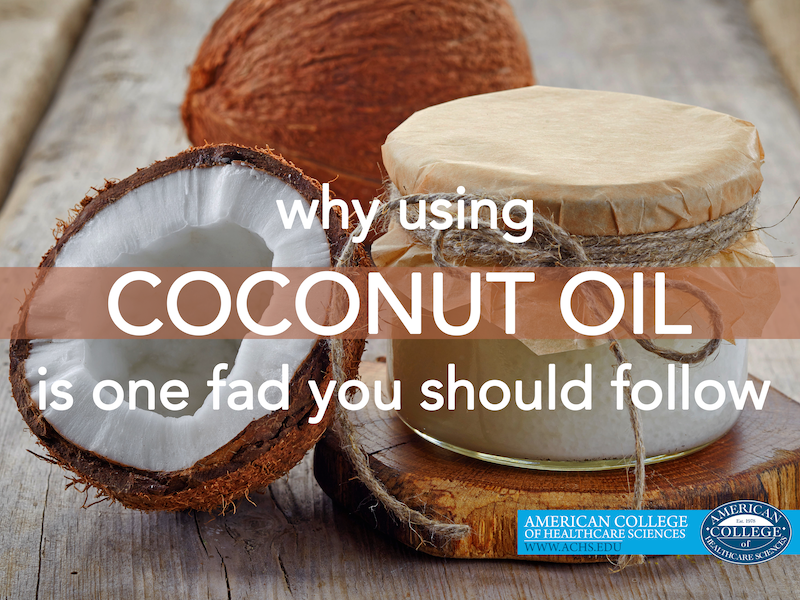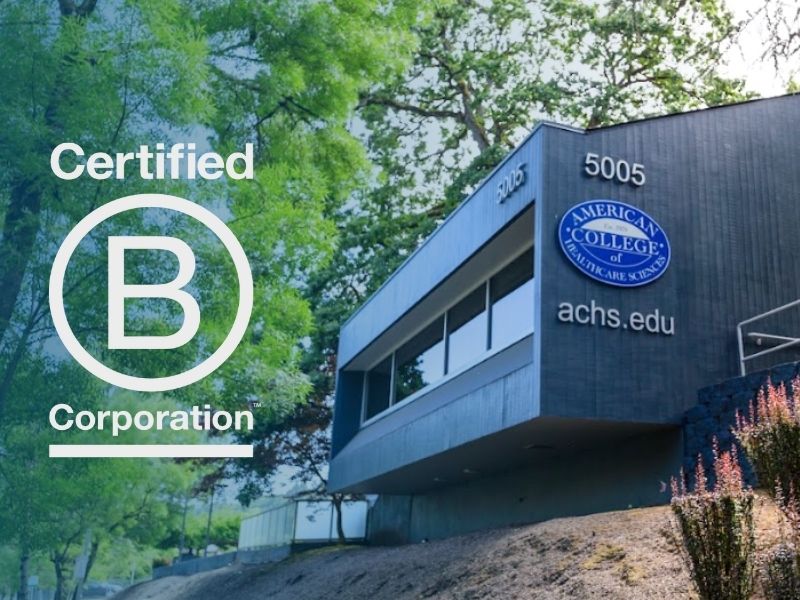Coconut oil is the newest health craze in functional foods and skin care.
Have you wanted to include coconut oil in your diet or use it on your skin, but worried it was “just a fad?” Worry no more, skeptics, because this is one health fad you’ll want to start following.
Widely touted by nutritionists as a “miracle” food that supports the liver, prevents osteoporosis, and even promotes weight loss, coconut oil is also making a name for itself within the soap and cosmetics industry as an outstanding moisturizer and skin emollient.
As these actions are extremely diverse, I decided to do additional research and to clarify any scientific evidence that supports the addition of coconut oil and, particularly, virgin coconut oil (VOC), into the diet or its use in skin care products.
(Side note: if you need help defining any therapeutic action terms, check out these blog posts here and here.)
Facts About Coconut Oil
As is evident by the name, it is sourced from coconuts of the tree Cocos nucifera (L.). Virgin coconut oil (VCO) is extracted from the coconut milk obtained from fresh coconuts. It is colorless, has a mild coconut aroma, and the best news: it does not go rancid!
The composition of VCO differs drastically from the composition of animal fats or vegetable oils. Unlike animal fats and vegetable oils, which contain mostly long chain triglycerides, medium chain triglycerides form the basis of VCO.
These are:
- lauric acid (45-56 %)
- myristic acid (16-21 %)
- palmitic acid (7.5-10 %)
- caprylic acid (4-10 %)
- capric acid (4-8 %)[1].
Scientific Studies of Coconut Oil
Now, let’s take a closer look at the results of published research studies on the benefits of coconut oil.
Antioxidant
Antioxidant properties of VCO are well established through research. Coconut oil is rich with phenolic compounds (caffeic acid, p-coumaric acid, ferulic acid, catechin) and is a powerful reactive oxygen species (ROS) scavenger[2]. ROSs, as you can see from the name, are extremely active molecules. They react and oxidize lipids that form cell membranes. By neutralizing them, phenolic compounds protect your cells from harmful damage.
An improvement in antioxidant status and reduction of oxidative stress was observed when VCO was added to the diets of mice and rats[3]. Some of the therapeutic properties of VCO discussed further in the paper are due to antioxidant properties.
Oxidative stress induced by ROS plays an important role in the development of hepatotoxicity (liver injury). Animal studies demonstrated that pretreatment of the rats with VCO reduces the liver damage caused by the administration of paracetamol[4]. Hepatoprotective properties of the VCO were also confirmed by another study when liver damage was induced in rats using 2, 4-dichlorophenoxyacetic acid, a highly toxic herbicide[5].
Many studies have also shown that oxidative stress plays a role in the development of osteoporosis: depletion in antioxidant enzymes in bone tissues accompanied by the increased activity of ROSs can induce bone loss. According to an animal study conducted on rats, supplementation with VCO may provide support in maintaining bone structure and preventing bone loss caused by estrogen deficiency[6].
Weight Management
Use of VCO as a weight management support is particularly interesting.
As previously mentioned, medium chain triglycerides dominate the composition of VCO. Studies previously showed that long-term substitution of long chain triglycerides with small and medium chain triglycerides may promote loss of body fat[7].
A study that investigated the effects of dietary supplementation with coconut oil on the biochemical and anthropometric profiles of women with waist circumferences (WC) >34 inches (abdominal obesity) was also conducted. It demonstrated that dietary supplementation with coconut oil (30 milliliters (mL) daily for 12 weeks) may show a decrease in body mass index (BMI) and potentially reduce abdominal obesity[8].
Other interesting therapeutic properties were also reported for VCO. For example, according to the study conducted on rats with ear edema, coconut oil exhibits anti-inflammatory, moderate analgesic, and antipyretic effects[9].
Coconut Oil and Skin Care
Now let’s take a look at the studies evaluating topical application of VCO. A large-scale clinical trial has also demonstrated that VCO can be applied topically for the management of moderate atopic dermatitis among kids. It was more effective than commonly used mineral oil[10].
According to animal testing, VCO may also be an effective wound-healing agent. Much faster wound healing was observed in a group of rats with wounds treated using VCO[11]. Antifungal properties were also established by an in vitro study. Coconut oil was effective against numerous Candida species, suggesting that it can be used as a basis for antifungal cream[12].
Clearly, there is plenty of evidence for the therapeutic properties of virgin coconut oil. As you can see, there is some exciting research emerging, however more studies, particularly clinical trials, are required to fully assess the beneficial properties of VCO.
So don’t feel bad about diving deep into this health fad—your skin and body will thank you for it!
Disclosure of Material Connection: I am the Academic Dean of American College of Healthcare Sciences, the Institution that publishes this blog. However, all opinions are my own. This blog may contain affiliate links. I am disclosing this in accordance with the Federal Trade Commission’s 16 CFR, Part 255: “Guides Concerning the Use of Endorsements and Testimonials in Advertising.”
This article is for informational purposes only. It is not intended to treat, diagnose, cure, or prevent disease. This article has not been reviewed by the FDA. Always consult with your primary care physician or naturopathic doctor before making any significant changes to your health and wellness routine.
[1] Asian and Pacific Coconut Community. (2009). APCC Standards for Virgin Coconut Oil. Retrieved from http://www.apccsec.org/standards.htm
[2] Seneviratne, K., & Sudarshana Dissanayake, D. (2008). Variation of phenolic content in coconut oil extracted by two conventional methods. International Journal Of Food Science & Technology, 43(4), 597-602. http://dx.doi.org/10.1111/j.1365-2621.2006.01493.x
Marina, A., Che man, Y., Nazimah, S., & Amin, I. (2009). Antioxidant capacity and phenolic acids of virgin coconut oil. International Journal Of Food Sciences And Nutrition, 60(s2), 114-123. http://dx.doi.org/10.1080/09637480802549127
Marina, A., Che Man, Y., Nazimah, S., & Amin, I. (2009). Chemical Properties of Virgin Coconut Oil. Journal Of The American Oil Chemists’ Society, 86(4), 301-307. http://dx.doi.org/10.1007/s11746-009-1351-1
[3] Nevin, K., & Rajamohan, T. (2006). Virgin coconut oil supplemented diet increases the antioxidant status in rats. Food Chemistry, 99(2), 260-266. http://dx.doi.org/10.1016/j.foodchem.2005.06.056
Arunima, S., & Rajamohan, T. (2013). Effect of virgin coconut oil enriched diet on the antioxidant status and paraoxonase 1 activity in ameliorating the oxidative stress in rats – a comparative study. Food & Function, 4(9), 1402. http://dx.doi.org/10.1039/c3fo60085h
[4] Zakaria, Z., Rofiee, M., Somchit, M., Zuraini, A., Sulaiman, M., & Teh, L. et al. (2011). Hepatoprotective Activity of Dried- and Fermented-Processed Virgin Coconut Oil. Evidence-Based Complementary And Alternative Medicine, 2011, 1-8. http://dx.doi.org/10.1155/2011/142739
[5] Abd El-Fattah, H., & Barakat, L. (2011). Hepatoprotective Effect of Olive and Coconut oils against Oxidative Stress- Induced by 2, 4 Dichlorophenoxyacetic Acid. IJAR, 3(12), 42-46.
[6] Hayatullina, Z., Muhammad, N., Mohamed, N., & Soelaiman, I. (2012). Virgin Coconut Oil Supplementation Prevents Bone Loss in Osteoporosis Rat Model. Evidence-Based Complementary And Alternative Medicine, 2012, 1-8. http://dx.doi.org/10.1155/2012/237236
[7] Matsuo, T., Matsuo, M., Taguchi, N., & Takeuchi, H. (2001). The thermic effect is greater for structured medium- and long-chain triacylglycerols versus long-chain triacylglycerols in healthy young women. Metabolism, 50(1), 125-130. http://dx.doi.org/10.1053/meta.2001.18571
Matsuo, T., Matsuo, M., Kasai, M., & Takeuchi, H. (2001). Effects of a liquid diet supplement containing structured medium- and long-chain triacylglycerols on bodyfat accumulation in healthy young subjects. Asia Pac J Clin Nutr, 10(1), 46-50. http://dx.doi.org/10.1046/j.1440-6047.2001.00196.x
[8] Assunção, M., Ferreira, H., dos Santos, A., Cabral, C., & Florêncio, T. (2009). Effects of Dietary Coconut Oil on the Biochemical and Anthropometric Profiles of Women Presenting Abdominal Obesity. Lipids, 44(7), 593-601. http://dx.doi.org/10.1007/s11745-009-3306-6
[9] Intahphuak, S., Khonsung, P., & Panthong, A. (2010). Anti-inflammatory, analgesic, and antipyretic activities of virgin coconut oil. Pharmaceutical Biology, 48(2), 151-157. http://dx.doi.org/10.3109/13880200903062614
[10] Evangelista, M., Abad-Casintahan, F., & Lopez-Villafuerte, L. (2013). The effect of topical virgin coconut oil on SCORAD index, transepidermal water loss, and skin capacitance in mild to moderate pediatric atopic dermatitis: a randomized, double-blind, clinical trial. International Journal Of Dermatology, 53(1), 100-108. http://dx.doi.org/10.1111/ijd.12339
[11] Nevin, K., & Rajamohan, T. (2010). Effect of Topical Application of Virgin Coconut Oil on Skin Components and Antioxidant Status during Dermal Wound Healing in Young Rats. Skin Pharmacol Physiol, 23(6), 290-297. http://dx.doi.org/10.1159/000313516
[12] Ogbolu, D., Oni, A., Daini, O., & Oloko, A. (2007). In Vitro Antimicrobial Properties of Coconut Oil on Candida Species in Ibadan, Nigeria. Journal Of Medicinal Food, 10(2), 384-387. http://dx.doi.org/10.1089/jmf.2006.1209




